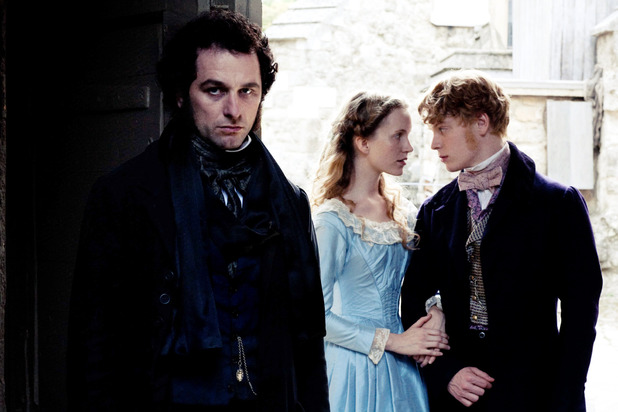 If you have been reading this blog for awhile, you know that it has become a tradition for me to give myself a summer reading "challenge" each year. Over the past few years, I have dedicated the time between Memorial Day and Labor Day to reading The Lord of the Rings, Southern literature, German literature, and worldwide literature. This year, I've decided to embrace my love of mystery by reading classics of "detective fiction". I'm not allowing myself to do any re-reading, so you won't find any Wilkie Collins, Sherlock Holmes, or Father Brown stories here. Instead, I'll be focusing on unread classics that take us from the birth of detective fiction in the Victorian era, through its golden age of the 1920s and 1930s, on up to some of the more modern additions. Here is what I have in store:
If you have been reading this blog for awhile, you know that it has become a tradition for me to give myself a summer reading "challenge" each year. Over the past few years, I have dedicated the time between Memorial Day and Labor Day to reading The Lord of the Rings, Southern literature, German literature, and worldwide literature. This year, I've decided to embrace my love of mystery by reading classics of "detective fiction". I'm not allowing myself to do any re-reading, so you won't find any Wilkie Collins, Sherlock Holmes, or Father Brown stories here. Instead, I'll be focusing on unread classics that take us from the birth of detective fiction in the Victorian era, through its golden age of the 1920s and 1930s, on up to some of the more modern additions. Here is what I have in store: -The Dupin Tales by Edgar Allan Poe: most literary historians believe C. Auguste Dupin to be literature's first real detective. Though you could argue that other writers like Charles Dickens and Wilkie Collins had used this plot device before, it was Poe who really gripped the reading world's imagination with his brilliant amateur detective. Dupin appeared in 3 of Poe's stories, all of which I will be reading and reviewing: The Murders in the Rue Morgue, The Mystery of Marie Roget, and The Purloined Letter.
-The Murder of Roger Ackroyd by Agatha Christie: if anyone deserves the name "Queen of Crime" it is Agatha Christie. Perhaps no mystery writer is as famous nor as well loved as this lady from Devon. She is the best-selling novelist of all time with roughly 4 billion copies sold. One of her most famous creations was the Belgian detective Hercule Poirot, and it is one of his cases that I have chosen to read. It is also Christie's most controversial work as well as one considered by many to be her masterpiece.
-Murder Must Advertise by Dorothy Sayers: Lord Peter Wimsey was another product of the golden age of detective fiction. He is the quintessential gentleman detective who solves crimes for his own amusement. This particular crime is set in the world of advertising.
-The Thin Man by Dashiell Hammett: Set in Prohibition-era New York, this is the story of former private detective Nick Charles and his clever (and wealthy) wife, Nora. After marrying, Nick decide to give up detecting and live the high life, but he is now being drawn (along with Nora) back into the world of crime and murder. This book launched the famous 1930s film series starring William Powell and Myrna Loy.
-Some Buried Caesar by Rex Stout: Another popular detective series in 1930s America was the Nero Wolfe series by Rex Stout. Born in Montenegro, Wolfe now lives in New York on West 35th St. His eccentricities and hobbies range from reading, to food, to orchids. In this story, Wolfe sets out to prove that a goring of rural man is not an accident, but murder.
-The Big Sleep by Raymond Chandler: The first in Chandler's acclaimed "Philip Marlowe" series, this book was listed in TIME Magazine's 2005 list "100 Best Novels". It is also the movie upon which the famous 1946 version starring Humphrey Bogart and Lauren Bacall was based.
-Faceless Killers by Henning Mankell: In case you haven't noticed, Scandinavian crime novels are all the rage. One of the most popular is the Wallender series by Swedish novelist Henning Mankell. Unlike many of history's famous detectives, Mankell is not exactly a hero. He struggles with alcohol and is often at loose ends socially. But that does not hinder him from solving some of the horrible crimes that happen in this cold country.
I have to admit that I am really looking forward to these books. If you have read any of them, please feel free to share your thoughts. And also feel free to join if you like. We're going under cover this summer and investigating some great literature in the process.

















